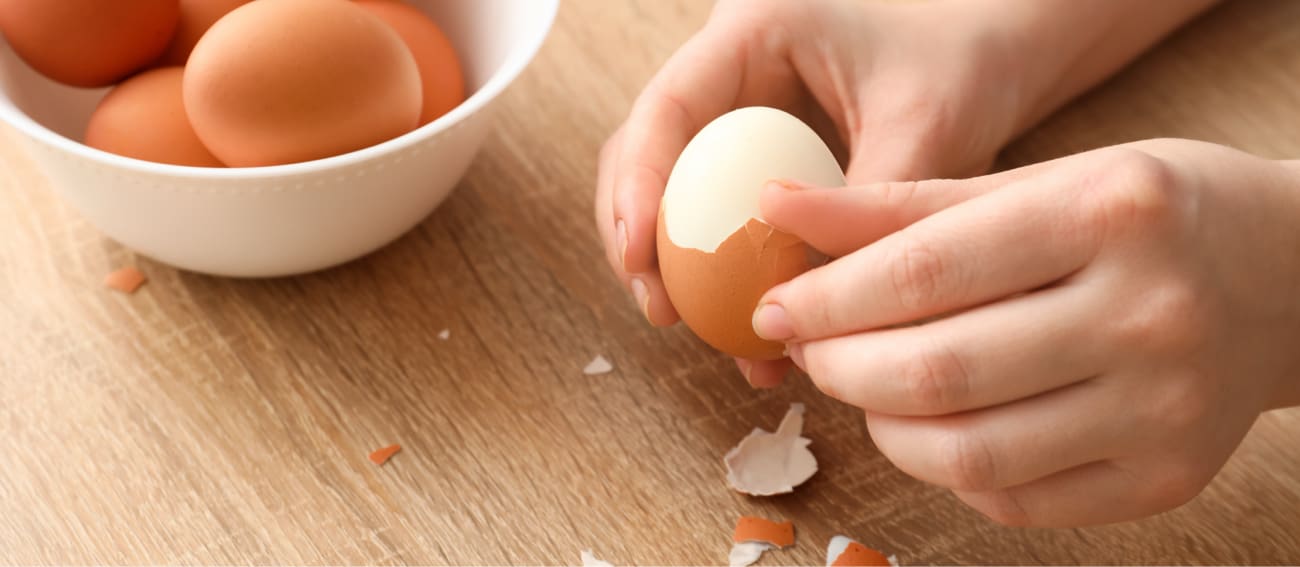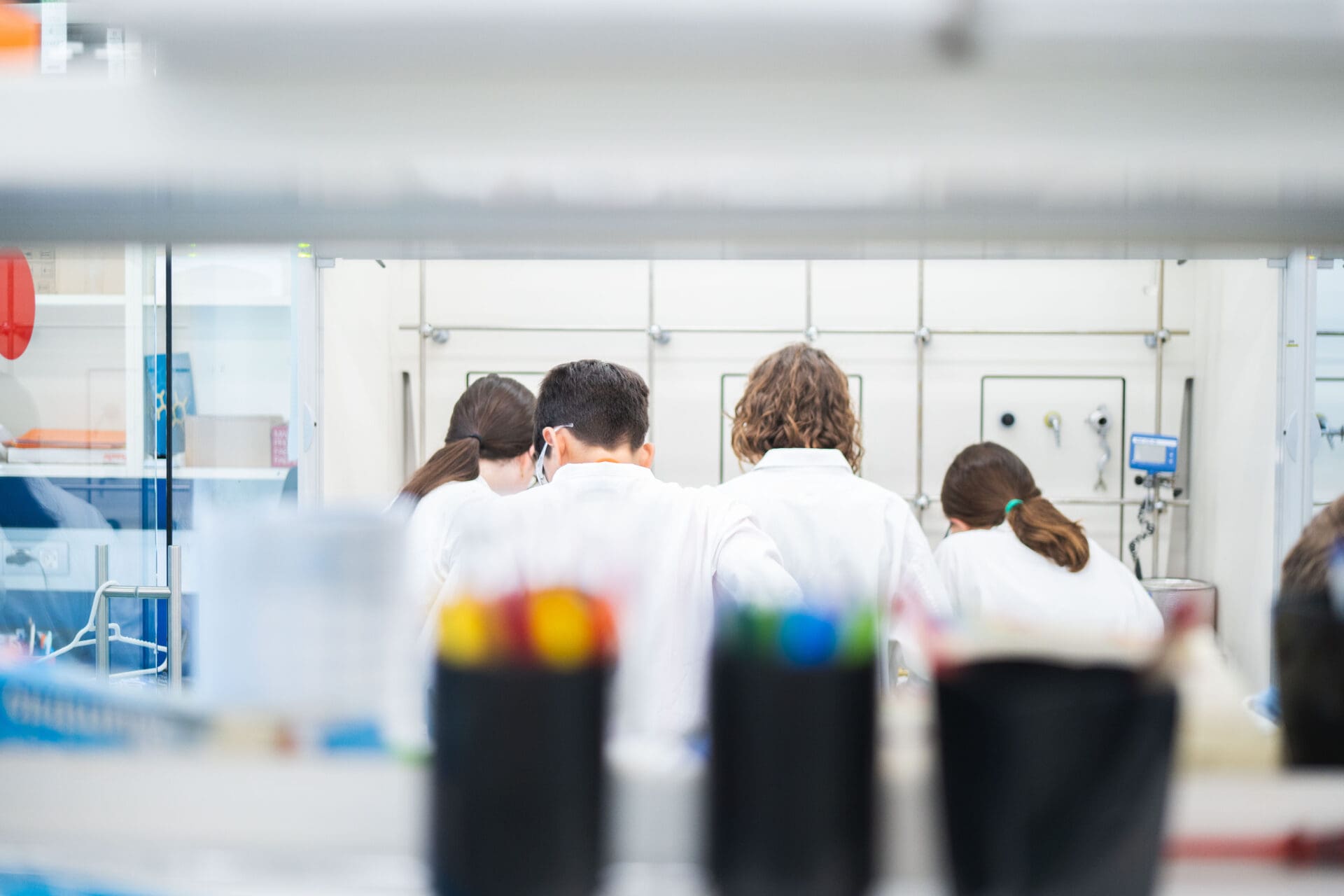Egg’s chemistry
Objective: perform experiments with eggs

-
Laboratory materials
Beakers
Crystallizing dish
Test tubes
Pipettes
Spatulas
-
Reagents
Water
Fresh and expired eggs
Ethanol
Hydrochloric acid (HCl) 2 M
Calcium carbonate (CaCO3)
-
Safety
Don't forget the gloves, lab coat, and safety goggles!!!
-
Questions
What do you observe when you introduce the eggs in the beakers? Is it what you expected?
Would you be able to differentiate between a raw egg and a boiled egg?
Which reaction takes place in the experiment with ethanol?
What can you conclude from the experiment with hydrochloric acid?
Procedure
- Fill the two beakers with water and introduce a fresh egg and an old one. Observe what happens.
- Crack the fresh egg and place it inside the crystallizing dish.
- Cover it with ethanol and wait a few minutes. Observe what happens.
- Add a spatula of calcium carbonate into one test tube and pieces of eggshell into another.
- Using the pipette, add two drops of hydrochloric acid to each tube.
Theoretical explanation
The fresher an egg is, the smaller its air cell inside. Therefore, its density will be greater, and it will sink more easily than an older egg, which will have a larger air cell and float.
Would you know how to differentiate a raw egg from a boiled one? If the eggs are spun on a flat surface, the hard-boiled egg manages to spin because it has a uniform distribution of matter. The raw egg cannot spin uniformly because its particles have different velocities.
The transformation observed when frying an egg consists of a structural change in the proteins. This change (denaturation) can occur not only due to heat but also through contact with certain substances like ethanol.
Finally, by adding hydrochloric acid to both tubes, bubbles form in both cases. This could suggest that the eggshell contains calcium carbonate. The reaction taking place is as follows:
CaCO3 + 2 HCl CaCl2 + CO2 + H2O















